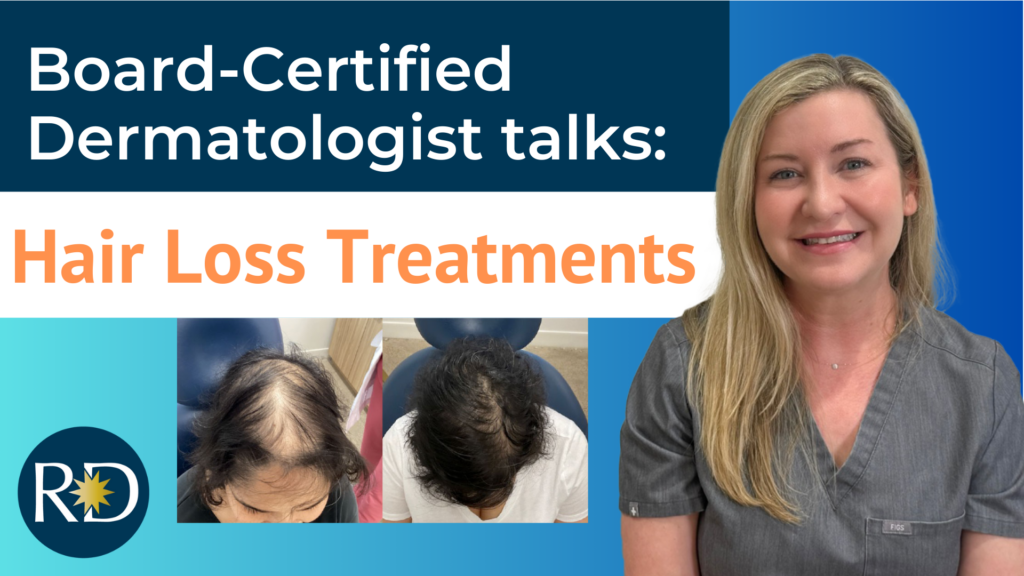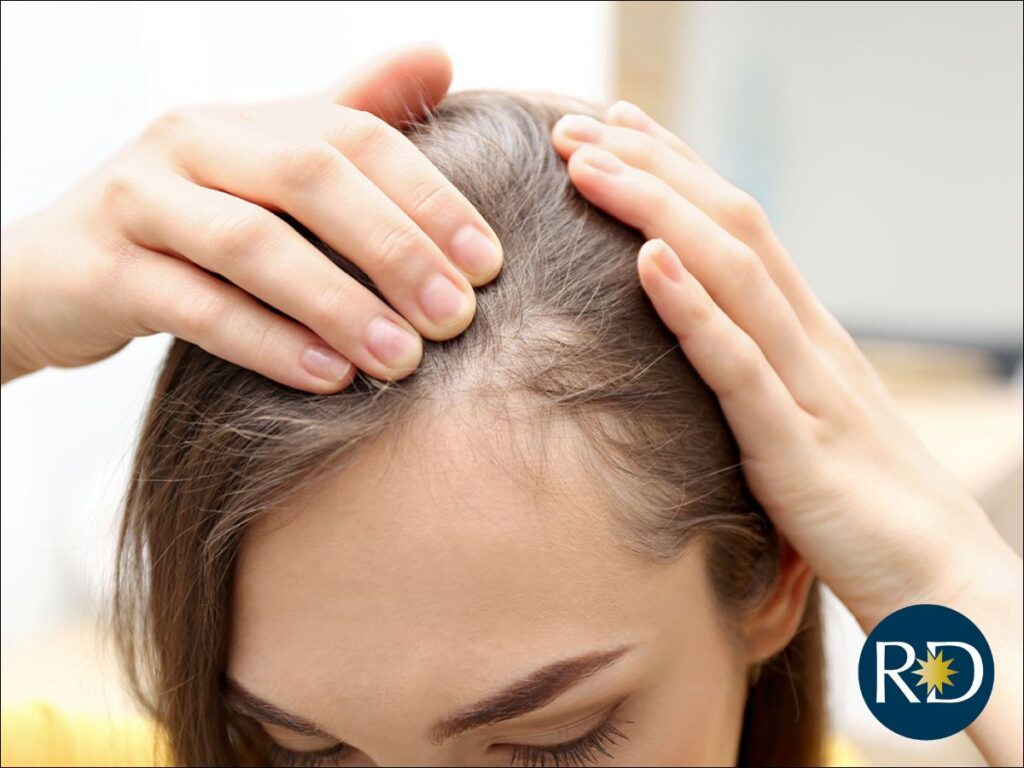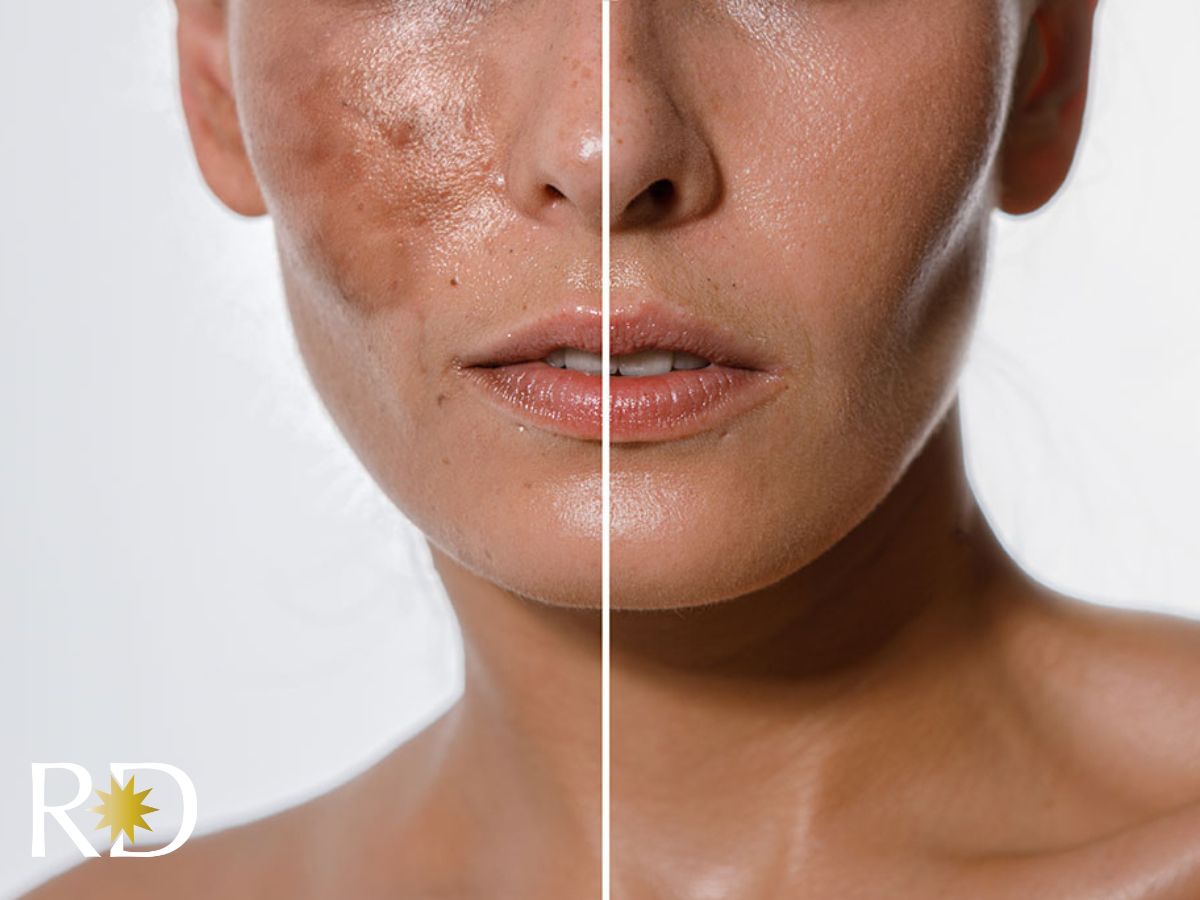Hair loss can result from various underlying factors, ranging from genetics to medical conditions. With years of experience treating patients for hair loss, the board-certified physicians at Revival Dermatology provide comprehensive insight into the diverse types of hair loss to better serve and support our patients.
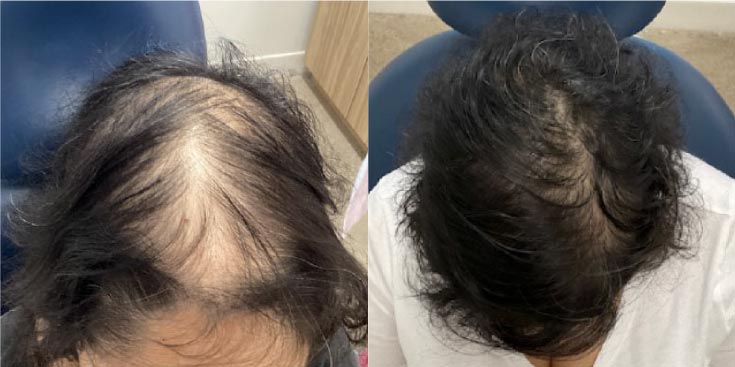
Androgenic Alopecia
Androgenic alopecia, also known as hereditary hair loss or pattern alopecia, is the most common cause affecting up to 50% of individuals. This type of hair loss occurs gradually and can manifest in both males and females. In male pattern baldness, progressive hair loss above the temples and thinning at the crown create an “M” shape. On the other hand, female pattern baldness often leads to overall thinning across the scalp, resulting in a widened part or thinning appearance, typically occurring after the age of 65 but can occur earlier.
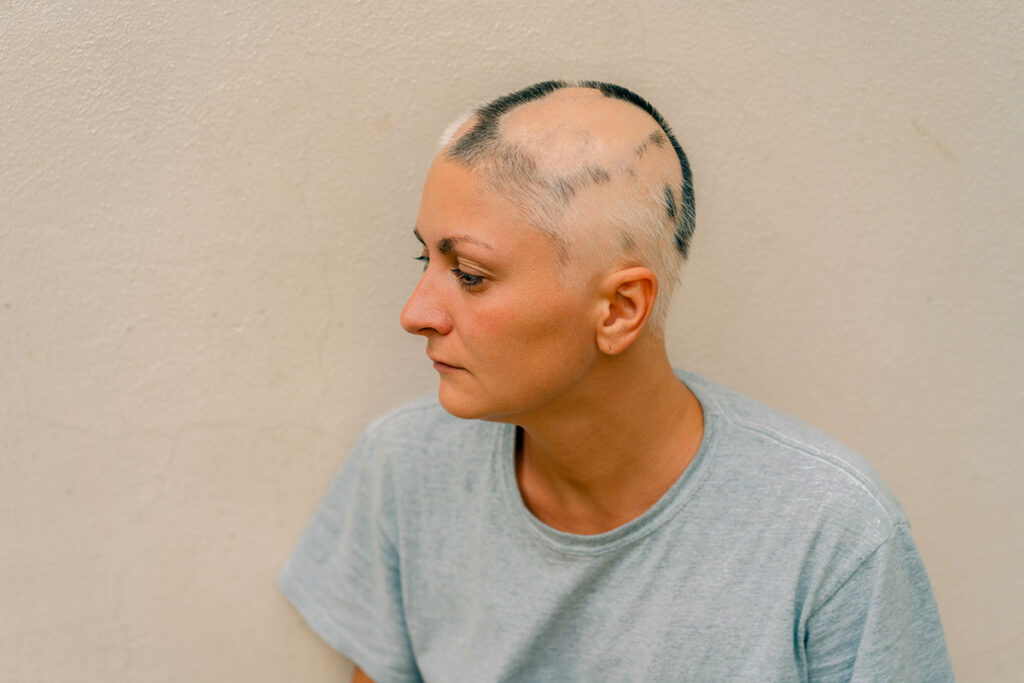
Alopecia Areata
Alopecia areata is an autoimmune condition characterized by the immune system’s attack on hair follicles, leading to bald patches of varying sizes on the scalp. In severe cases, it may result in total hair loss. Additionally, individuals with alopecia areata may experience loss of hair from eyebrows, eyelashes, or other body parts.
Anagen Effluvium
Anagen effluvium involves rapid hair loss, often triggered by radiation treatment or chemotherapy. However, hair typically regrows after the cessation of treatment.
Telogen Effluvium
This type of hair loss manifests as sudden, diffuse hair shedding due to factors such as emotional or physical shock, hormonal changes (like those occurring during childbirth, postpartum, menopause, or due to PCOS), malnutrition, endocrine disorders, starting or stopping hormonal birth control, anesthesia from surgery, acute illnesses, infections, or certain medications. Fortunately, it usually resolves once the underlying cause is addressed.
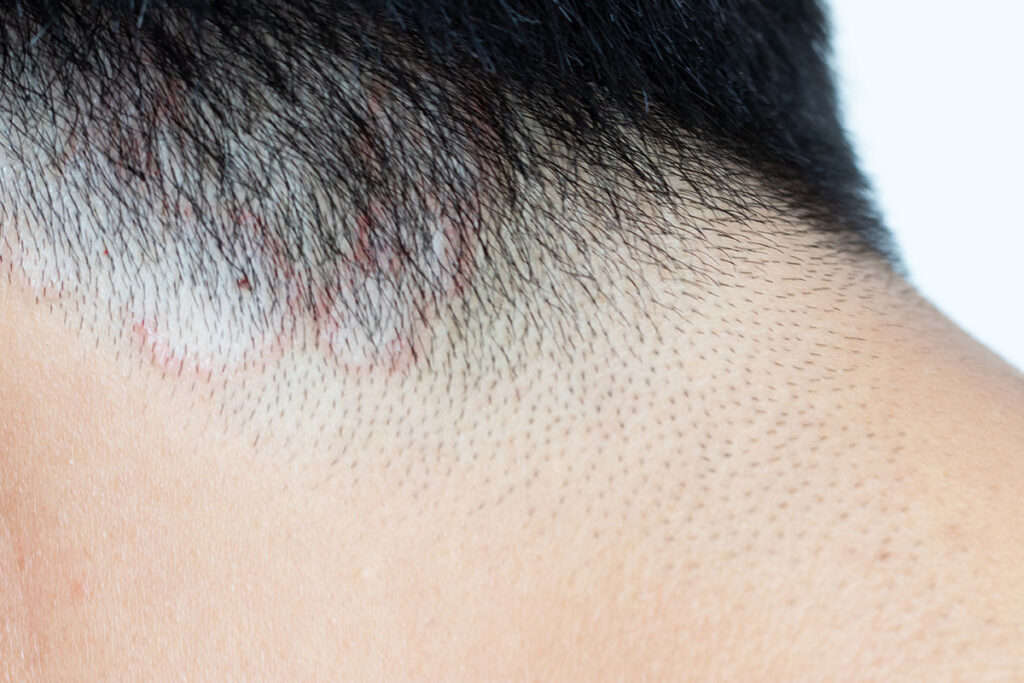
Tinea Capitis
Tinea capitis, also known as ringworm of the scalp, is a fungal infection that can lead to small, scaly, and itchy bald patches on the scalp. If left untreated, the patches can increase in size, fill with pus, and potentially cause scarring. Antifungal medication is an effective treatment for this condition.
Traction Alopecia
Traction alopecia results from prolonged, excessive pressure and tension on the hair, often due to tight hairstyles like braids, ponytails, or buns.
Understanding the distinct types of hair loss is vital for accurate diagnosis and tailored treatment. At Revival Dermatology, our commitment to providing thorough and comprehensive care includes addressing the unique needs of each patient experiencing hair loss, offering effective solutions, and promoting overall hair health.
Read: 10 Facts About Hair Loss
If you are concerned you may have any of the above hair loss conditions, please book an evaluation appointment with us at Revival Dermatology in Dallas, today.
